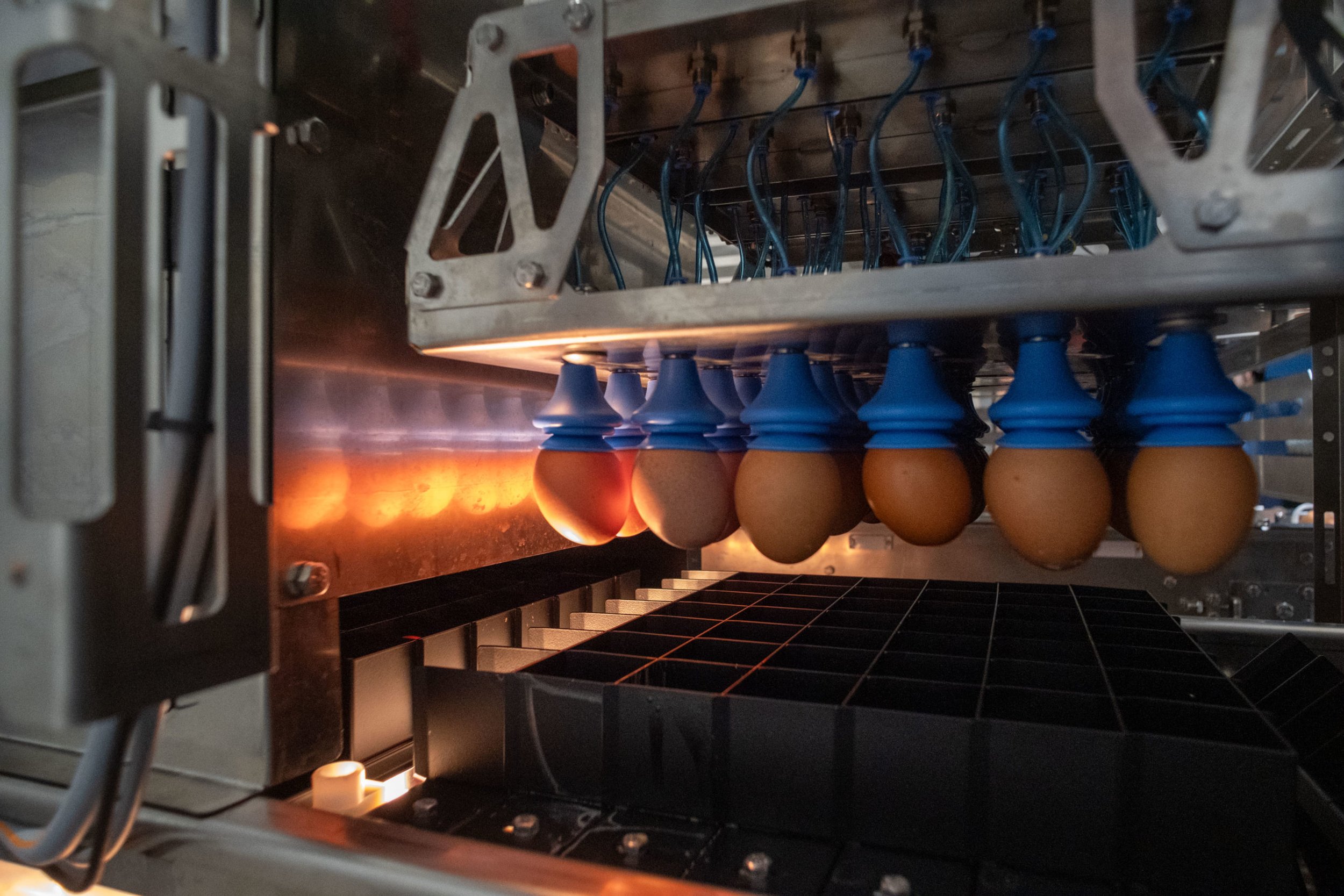In Historic Moment, First U.S. In-Ovo Sexed Chicks Now En Route to NestFresh Farms
In-ovo sexing has officially made it to the United States!
Today, stakeholders and press gathered to celebrate the first hatch of in-ovo sexed chicks on U.S. soil with an event taking place at an Iowa hatchery. This occasion represents the advent of a new specialty category of eggs for American consumers.
Eggs produced by in-ovo sexed hens will hit American grocery store shelves in mid-2025 under specialty egg producer NestFresh’s label. NestFresh intends to implement in-ovo sexing across its entire egg line in the coming months.
Among the event’s attendees was Innovate Animal Ag CEO Robert Yaman. “This historic moment for the US egg industry is only possible due to the courage and determination of producers like NestFresh to pioneer a better way forward,” Yaman said. “These first chicks hatched on US soil represent the beginning of a future for the industry that is better for consumers, producers, and animals.”
As we announced back in August, the introduction of in-ovo sexing to the U.S. market was made possible by Agri-Advanced Technologies, whose in-ovo sexing machine known as Cheggy is now in use at both the Iowa hatchery and a second location in Texas. The machine uses hyperspectral imaging to determine the color of a developing embryo’s feathers, at an impressive throughput of 25,000 eggs per hour with high accuracy.
This development comes in response to American consumers voicing a clear demand for in-ovo sexing. In a survey commissioned by Innovate Animal Ag and fielded by Nielsen Consumer Insights, 61% of egg buyers reported discomfort with the practice of killing male chicks, and 47% of all consumers said they were “extremely” or “very” interested in eggs produced using in-ovo sexing.
Shoppers who share these opinions will be able to identify eggs produced with this innovative welfare technology thanks to their labeling, namely a certification for Approved Hatchery Operations from third-party welfare auditor Certified Humane.
Certified Humane’s sexing standard is the first of its kind in the U.S. and will require participants to submit to annual reviews from Humane Farm Animal Care. In order to qualify for this certification, producers must avoid male chick culling either through the practice of in-ovo sexing or by instead ensuring that viable male chicks are raised to maturity.
Consumers can rest assured that any eggs labeled as meeting Certified Humane’s Approved Hatchery Operations standard are subject to complete operation traceability, meaning that certified in-ovo sexed chicks and eggs are never mixed with uncertified chicks and eggs as they make their way from the hatchery, to the farm, to grocery store shelves.
As these uniquely high-welfare eggs become available to discerning Americans, it’s only a matter of time before other hatcheries and egg producers get in on the action!

